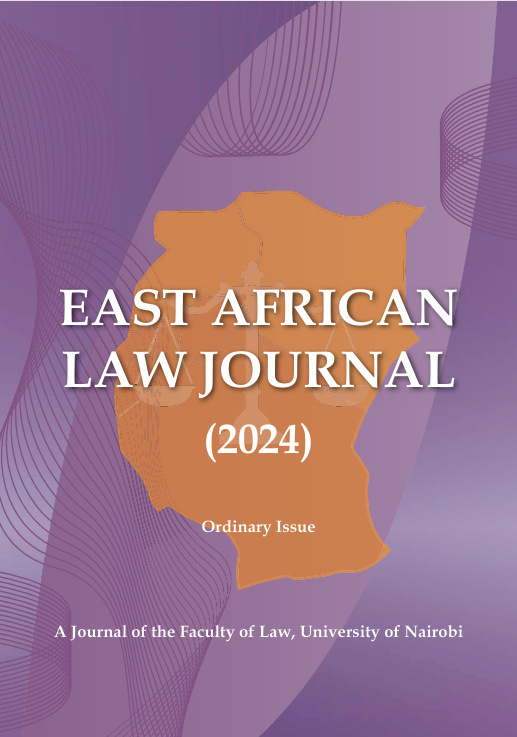THE CONCEPT OF PERSONHOOD, WOMEN AND THE LAW IN KENYA
Abstract
Women are always becoming and belonging to by evolving from daughters, sisters, mothers, wives and widows. Personhood in Africa is tied to the family, the community and it is also spiritual. It is never defined in isolation; it is defined in relationships. This idea of communal living prevalent in Africa has intrinsic value; it is a product of African humanism which is concerned with the preservation of life, systems and order. All these stages of life women go through are communal rather than individual. While African feminism embraces and celebrates women through their life cycle, it is evident that women are disproportionately affected by these relationships through customs, traditional values and beliefs, religion and the law. Therefore, the purpose of this article is to interrogate how the concept of personhood in Kenya is defined and interpreted through a woman’s life cycle and how it reflects in law and its implication to the economic status of women. African and legal feminist frameworks will be used to discuss the concept of personhood, its interpretation from the different standpoints, challenges women face as a result and lastly, strategies that women use to overcome these challenges. This article aims to show the interrelationship and importance of taking into consideration the multifaceted nature of becoming from an African woman’s standpoint, how we define and interpret women in law, their voices and experiences as individuals capable of being their own person and how legislations can be made to reflect these lived realities of African women to promote their economic status.






